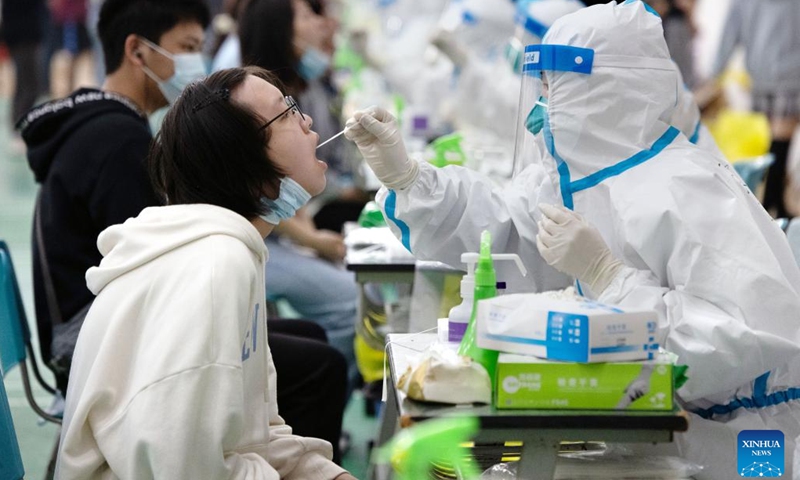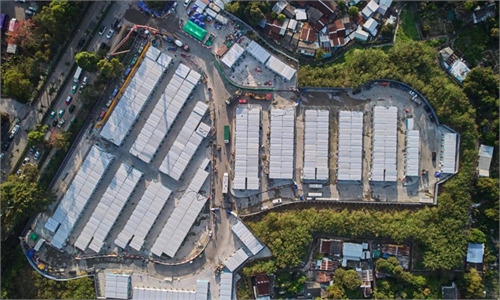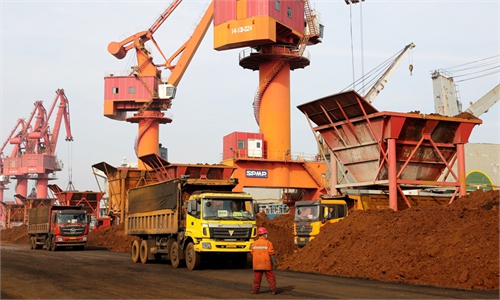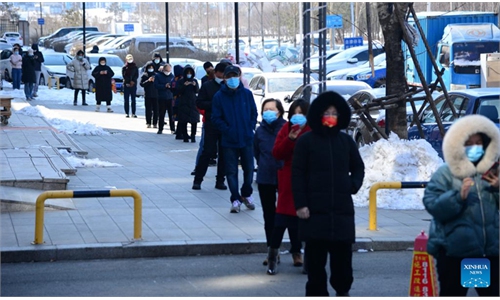9,000 theater performances to be cancelled or postponed due to virus resurgence: association

A medical worker takes a swab sample from a student for nucleic acid test at a university in Qingpu District of east China's Shanghai, March 14, 2022.(Photo: Xinhua)
According to research by ticket platforms, theaters and troupe brokers by China Association of Performing Arts (CAPA), more than 4,000 performances were cancelled or postponed from mid-February to mid-March, and as many as 80 percent of the planned events will be suspended or postponed in late March, the CAPA said on Tuesday.
It is expected that by the end of March, about 9,000 performances will be cancelled or postponed nationwide, accounting for 30 percent of the total planned performances for the first quarter of 2022.
As of March 18, the number of performances in theaters and other public venues nationwide in 2022 totaled 24,700, with box office revenues reaching 1.316 billion yuan ($206.5 million).
It is expected that the number of performances in the first quarter will come in 25 percent lower than the same period last year, and box office revenues will shrink by 35 percent year-on-year, the association said.
As the country is hit by a new wave of the Omicron variant of COVID-19, Chinese authorities have strengthened regulations on holding public activities to avoid large gatherings. Many theaters in Shanghai, Guangdong and Tianjin have shut down, cancelling their performances, the CAPA said.
On Tuesday, the country reported a total of 2,667 new COVID-19 confirmed cases with 2,469 silent carriers, the national health commission said.
Global Times



